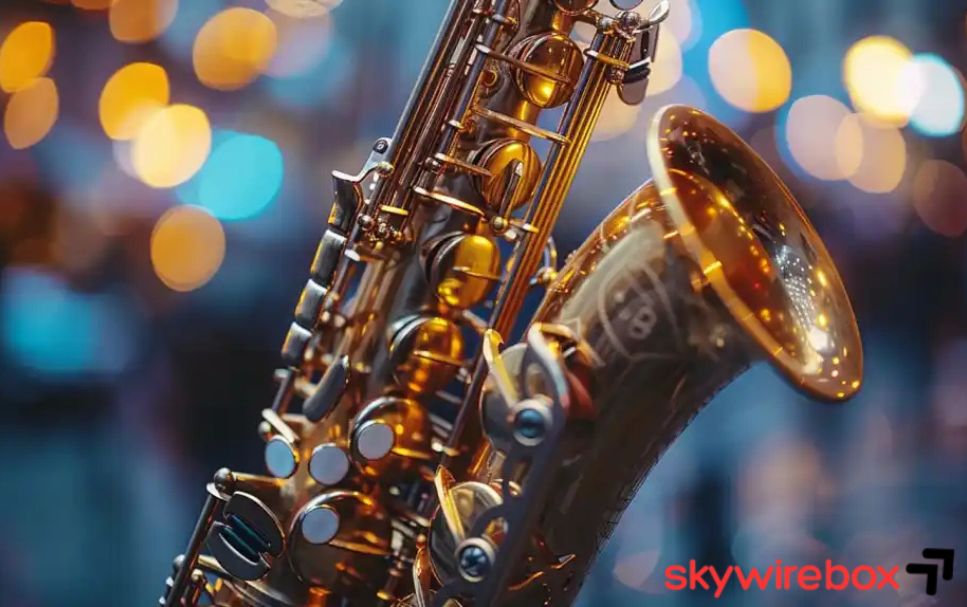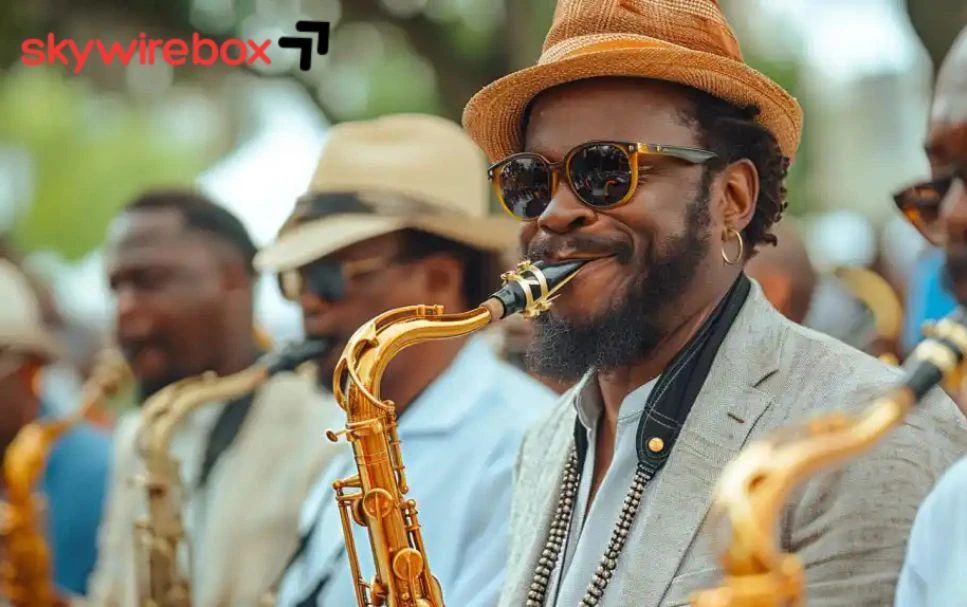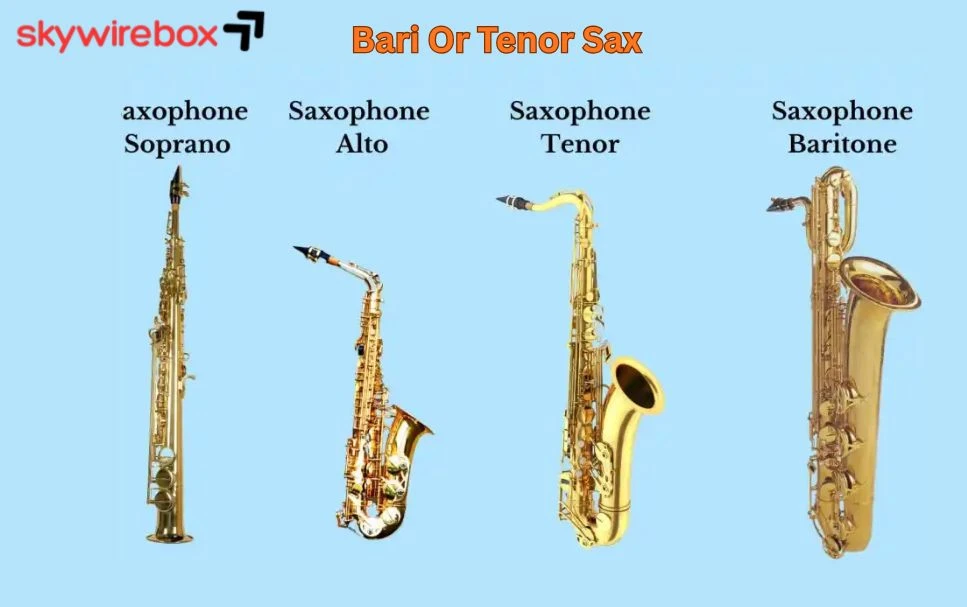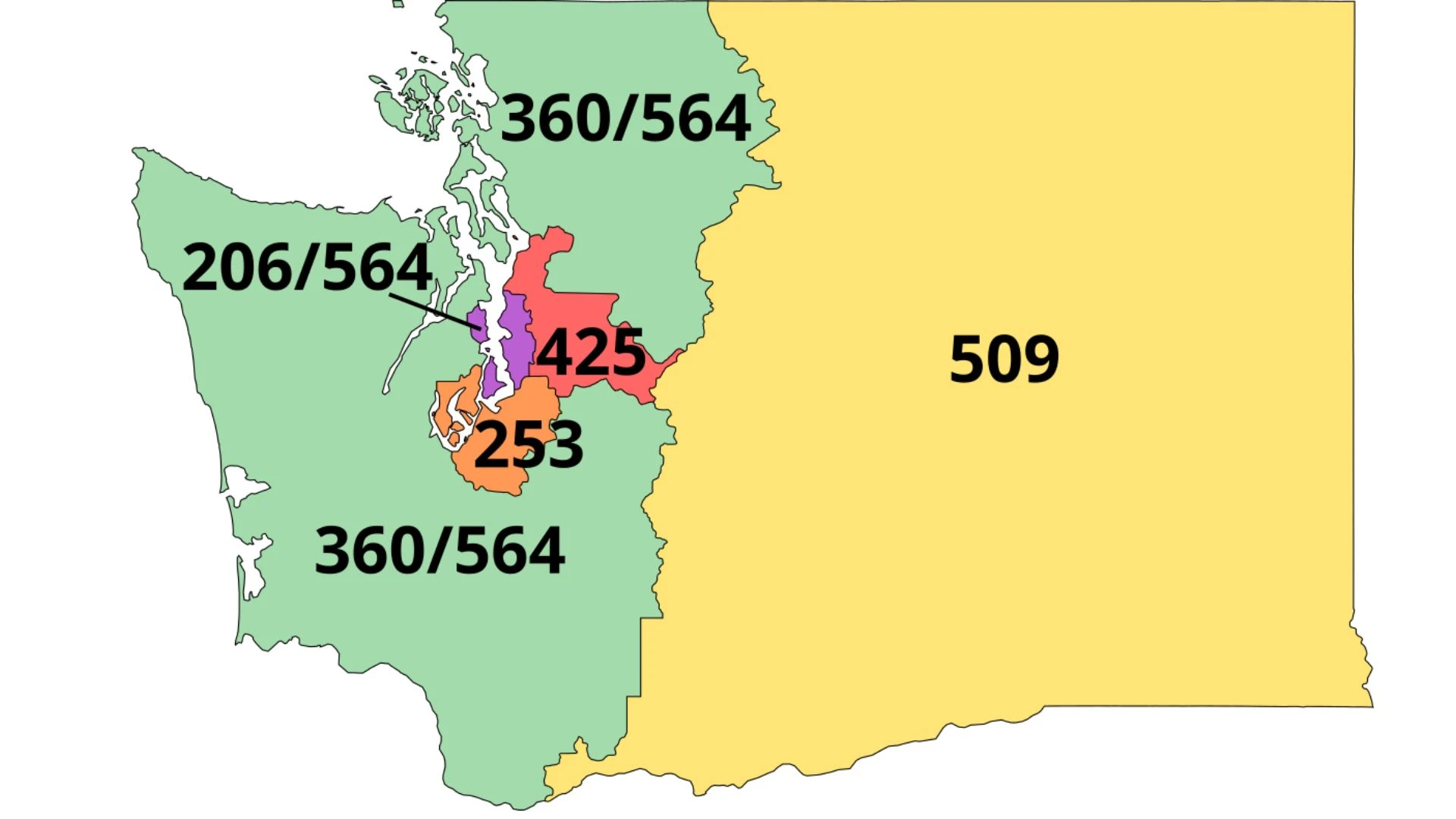Are you trying to decide between learning the bari sax or the tenor sax? Choosing the right saxophone can shape your entire musical experience.
You want an instrument that fits your style, feels comfortable, and helps you stand out. But with so many options, it’s easy to feel stuck. This guide will break down the key differences and help you find the perfect match.
Keep reading you’re closer than you think to making a choice that will boost your skills and enjoyment.
Bari Vs Tenor Sax
The debate between bari and tenor saxophones is common among beginners. Both belong to the sax family but serve different musical roles. Choosing the right one depends on what sound and style suit you best.
Key Differences
The bari saxophone is larger and lower in pitch than the tenor. It plays deeper notes and often supports the bass line in music. The tenor sax has a higher pitch and is more common in jazz and pop. Both have unique roles in bands and orchestras.
Sound And Range
The bari sax produces a rich, deep, and full sound. It covers low notes that give music a strong foundation. The tenor sax sounds brighter and more melodic. It fits well in solos and melodic lines. Each has a different tone that suits various music types.
Physical Size And Weight
The bari sax is much bigger and heavier than the tenor. Carrying it can be harder, especially for younger players. The tenor sax is lighter and easier to handle. This makes it a popular choice for beginners and those who travel often.
Skill Level Needed
Choosing between the bari and tenor saxophone depends on your skill level. Each instrument has its unique challenges and learning curve. Understanding these can help you decide which saxophone suits you best.
Beginner Challenges
The tenor saxophone is often easier for beginners. It has a smaller size and lighter weight. This makes it easier to hold and play for long periods. The finger spacing is comfortable for small hands. The sound is also easier to control at the start.
The baritone sax is larger and heavier. It requires more breath support and strength. Beginners may find it hard to hold and play for long. The keys are bigger and spaced differently. This can make finger movement slower at first.
Advanced Techniques
Advanced tenor sax players explore fast runs and complex rhythms. The instrument is agile and suits many music styles. It allows for expressive bending of notes and vibrato. These techniques add emotion and character to playing.
Baritone sax requires strong breath control for deep, rich tones. Players use advanced breath techniques to support long phrases. Mastering the baritone means controlling its powerful low sound. It shines in styles needing a bold and full voice.
Music Styles For Each
Choosing between the bari and tenor saxophones depends a lot on the music style you enjoy. Each saxophone fits better in certain genres. This section explores how these two saxophones shine in different musical settings.
Jazz And Blues
The tenor sax is a staple in jazz and blues music. Its warm, flexible tone suits solo and ensemble play. Many jazz legends played tenor sax, making it popular in these genres. The bari sax also appears in jazz but less often. It offers deep, rich sounds that add a unique layer in blues bands.
Classical And Marching Bands
Bari saxophones are common in marching bands and classical music. Their strong, low notes support the bass line and blend well with brass instruments. Tenor saxophones also appear in these settings but usually carry melody or harmony parts. Classical sax players enjoy the tenor for its smooth, clear sound.
Contemporary Genres
Both saxophones find a place in pop, rock, and funk music. The tenor sax often leads with catchy riffs and solos. The bari sax adds depth and power in funk and soul bands. Each instrument can bring unique energy to modern music styles, depending on the sound you want.
Portability And Handling

Portability and handling are important factors when choosing between a bari sax and a tenor sax. These instruments differ in size and weight. This affects how easy they are to carry and play. Understanding these differences helps you pick the right sax for your needs.
Travel Considerations
The tenor sax is smaller and lighter than the bari sax. This makes it easier to carry on trips. You can fit the tenor sax in a smaller case. It also takes less space in cars or planes. The bari sax is larger and heavier. It needs a bigger, sturdier case. Carrying it for long distances can be tiring. Also, some airlines charge extra for big instruments. Think about how often you travel with your sax.
Comfort In Playing
The tenor sax is easier to hold and play for most people. It weighs less and fits better in the hands. This helps beginners learn faster. The bari sax is heavier and bigger. Playing it for a long time may cause fatigue. Your posture can feel strained after a while. Both saxes need a neck strap. But the bari sax strap must support more weight. Comfort during practice and performance is key to enjoy playing.
Cost And Availability
Choosing between bari and tenor saxophones involves thinking about cost and availability. These two factors can affect your decision. It’s important to know what to expect when buying the instrument and its accessories.
Price Range Comparison
Tenor saxophones usually cost less than bari saxophones. Beginner tenor saxophones start around $500. Professional models can reach $3,000 or more. Bari saxophones tend to be pricier. Beginner bari saxophones often start near $1,200. High-end bari saxophones can cost over $4,000. The higher price comes from their larger size and complexity. Keep budget in mind before choosing.
Finding Instruments And Accessories
Tenor saxophones are more common in music stores. This means easier access to both new and used instruments. Accessories like reeds, mouthpieces, and cases are widely available. Bari saxophones are less common. Finding them may require special orders or online shopping. Accessories for bari saxophones can be harder to find. This could add time and cost to your purchase. Consider availability to avoid frustration later.

Personal Goals And Preferences
Choosing between bari and tenor sax depends a lot on your personal goals and preferences. Each instrument offers a different experience and sound. Your choice should match what you want to play and how you want to express yourself through music. Think about your future plans and what feels right for you.
Solo Vs Ensemble Playing
Do you enjoy playing alone or with others? Tenor sax fits well in solos. It has a bright, clear sound that stands out. Many players use it to shine in jazz or pop music. Bari sax works great in groups. Its deep, rich tone supports the whole band. It often plays harmony or bass lines in ensembles. Choose the instrument that suits your preferred setting.
Preferred Sound And Style
Sound matters a lot. Tenor sax has a sharp, smooth voice. It suits fast, lively music styles. Think jazz, rock, or blues. Bari sax has a heavier, fuller sound. It fits well in funk, soul, and big bands. Your taste in music should guide your choice. Pick the sax that matches the sound you love most.
Expert Tips To Decide Quickly
Deciding between a bari sax and a tenor sax can feel tough. Both have unique sounds and uses. Expert tips can help you make a quick, clear choice. Focus on what fits your style and goals best.
Try Before You Buy
Test both saxophones if possible. Play them to hear how they sound. Notice which feels easier to hold and play. Your comfort matters a lot. Trying helps you find the right fit fast.
Seek Professional Advice
Ask a music teacher or sax player for advice. They know the strengths of each sax. Professionals can guide you based on your skill level and music taste. Their experience saves time and confusion.
Set Clear Priorities
Think about what matters most to you. Is it sound, size, or music style? Write down your main goals for playing sax. Clear priorities make your decision simple and focused.

Frequently Asked Questions
What Are The Main Differences Between Bari And Tenor Sax?
The bari sax is larger, with a deeper tone and lower pitch. The tenor sax is smaller, more versatile, and has a brighter sound. Both are popular in jazz and band settings but suit different musical roles.
Which Saxophone Is Easier For Beginners To Learn?
The tenor sax is generally easier for beginners due to its smaller size and lighter weight. It requires less breath control than the bari sax, making it more comfortable for new players to handle and practice.
Is Bari Saxophone Better For Jazz Or Marching Bands?
The bari sax excels in marching bands due to its powerful, low sound. The tenor sax is more common in jazz for its expressive, mid-range tone. Choose based on your preferred musical style and ensemble.
How Do Bari And Tenor Saxophones Differ In Price?
Bari saxophones are typically more expensive due to their size and complexity. Tenor saxophones are more affordable and widely available, making them a practical choice for most players and budgets.
Conclusion
Choosing between bari and tenor sax depends on your music style and goals. Bari sax offers deep, rich sounds and suits big bands well. Tenor sax is lighter, easier to carry, and fits many music types. Try both if you can.
Think about comfort and the sound you enjoy most. Both instruments bring joy and creativity. Pick the one that feels right for you. Your music journey starts with this choice. Have fun playing!
Read More Information: skywirebox








